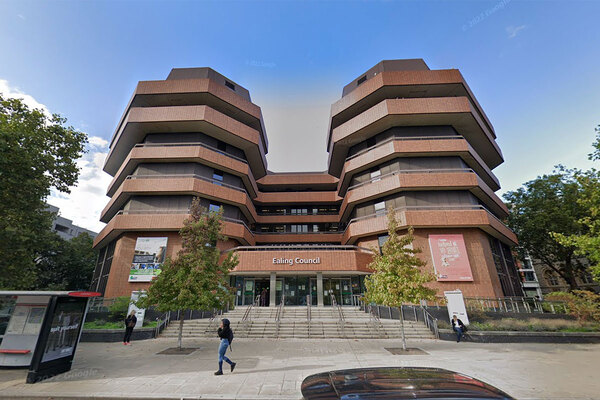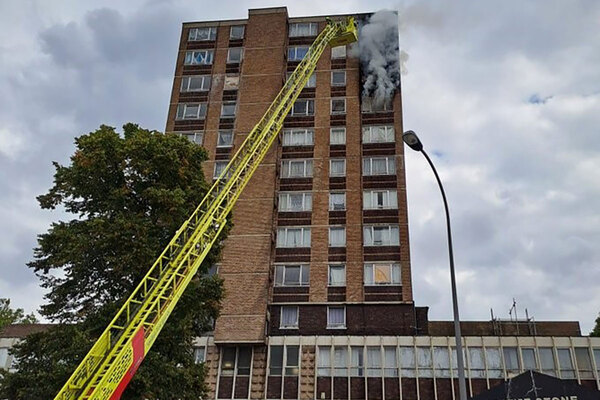You are viewing 1 of your 1 free articles
Keep stock transfer housing associations local
Housing associations set up in Tower Hamlets to receive transferred council assets should prioritise remaining local, writes Rabina Khan
Last month, the proposed merger between two local housing associations in Tower Hamlets, Poplar HARCA and Tower Hamlets Community Housing Association (THCH), was unexpectedly abandoned.
The exact reasons behind this decision remain unclear. Both organisations, however, have reaffirmed their dedication to improving services and investing in our homes and neighbourhoods.
This turn of events underscores the significance of housing associations deeply embedded within the communities they serve.
By maintaining the local presence of housing associations, we ensure decisions are made with an intimate understanding of our community’s challenges and opportunities, including the cultural nuances and specific needs of different ethnic groups.
While there’s been a push for THCH to return under council control, concerns about the financial liability risk seemingly preclude this option. This would be ground-breaking if it can happen.
But, if not, I firmly believe housing associations set up in Tower Hamlets to receive transferred council assets should prioritise remaining local by merging with other local associations.
This ensures local accountability, effective service delivery and community engagement – all of which THCH must put central to its operations.
I always maintained that council homes should remain under council control. I was against the Tower Hamlets Housing Choice programme, which transferred ownership of many of our social housing estates to housing associations.
Years later, we see local stock transfer associations disappearing, absorbed into larger entities, and eroding vital historical local connections.
“I always maintained that council homes should remain under council control. I was against the Tower Hamlets Housing Choice programme, which transferred ownership of many of our social housing estates to housing associations”
For instance, Old Ford Housing Association, originally locally based in Bow as part of Circle Housing Association. Following Circle’s merger with Affinity Sutton in 2016, it transformed into Clarion Housing Group, now managing a staggering 125,000 homes spread across 170 local authorities.
Similarly, Toynbee Island Homes was once a part of Toynbee Housing Association, which merged with Community Housing Association to form One Housing Group. Subsequently, One Housing merged with Riverside, a Liverpool-based organisation overseeing 75,000 homes across 175 local authorities.
Swan Housing Group, which also inherited council stock, recently merged with Sanctuary Housing, a Worcester-based entity managing 105,000 homes.
However, not all transitions result in a loss of local identity. Bethnal Green and Victoria Park Housing Association merged with Labo to establish Gateway Housing Association, maintaining its localised presence with 3,000 homes primarily in Tower Hamlets.
Similarly, Mitali Housing Association, previously affiliated with Network Homes, transferred to THCH in 2013 in response to residents’ desire for local management in Tower Hamlets.
Until now, THCH has retained its local focus, preserving crucial ties with the community it serves. But that local focus is now at risk.
Tower Hamlets holds historical significance as the site of the Boundary Estate, widely acknowledged as the first social housing project. Built between 1890 and 1900, the estate emerged as a response to deplorable living conditions endured by the working class in London’s East End.
Incorporating innovative features like open spaces, community facilities and improved ventilation, the Boundary Estate set a precedent for subsequent social housing initiatives, addressing issues of poverty and unsanitary living conditions while reshaping urban development strategies.
“Considering Tower Hamlets’ housing deficit, with one in three children living in poverty, socio-economic disparities, and the mortality gap between the borough’s rich and poor, the challenge is how the regulator can champion the importance of locally based housing associations”
Tower Hamlets, with its unique character and diverse needs, is best served by local organisations. With 55% of its vibrant community belonging to Black, Asian and minority groups, in taking its decisions the Regulator of Social Housing (RSH) must acknowledge our borough’s rich history of social housing and its vibrant diversity.
In a comment piece for Social Housing, Jonathan Walters, deputy chief executive at the RSH, said: “The ‘good old days’ are gone, if not imaginary.”
However, many in Tower Hamlets believe that the good old days need not be over. Tower Hamlets was a pioneering endeavour to provide decent and affordable housing for low-income families.
Considering Tower Hamlets’ housing deficit, with one in three children living in poverty, socio-economic disparities, and the mortality gap between the borough’s rich and poor, the challenge is how the regulator can champion the importance of locally based housing associations.
I’ve known Anne Ambrose for many years. A THCH resident born and raised in Tower Hamlets, she chairs the Minerva residents association in Bethnal Green. She witnessed the inception of social housing under the GLC, its subsequent transfer to Tower Hamlets Council following the abolition of the GLC, and later, the council stock’s transition to THCH.
“Keeping local housing associations rooted within the community offers hope, especially where the cost of living hits people hardest in the borough,” Anne says.
Rabina Khan, journalist and former cabinet member for housing, Tower Hamlets Council
Sign up for our Council Focus newsletter
Already have an account? Click here to manage your newsletters













